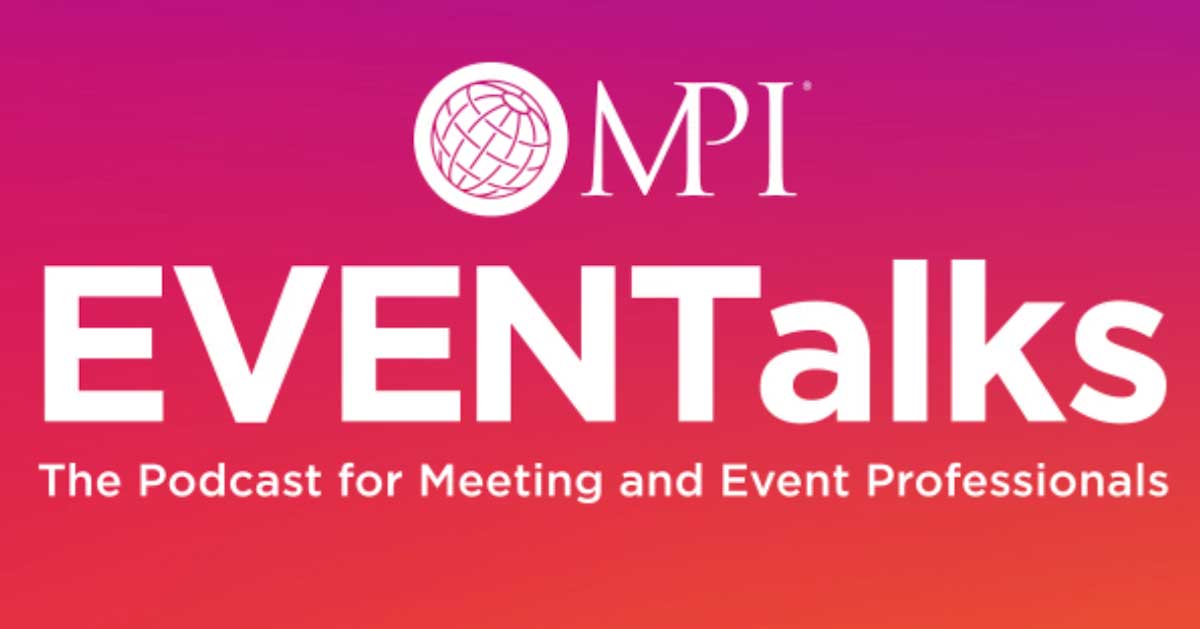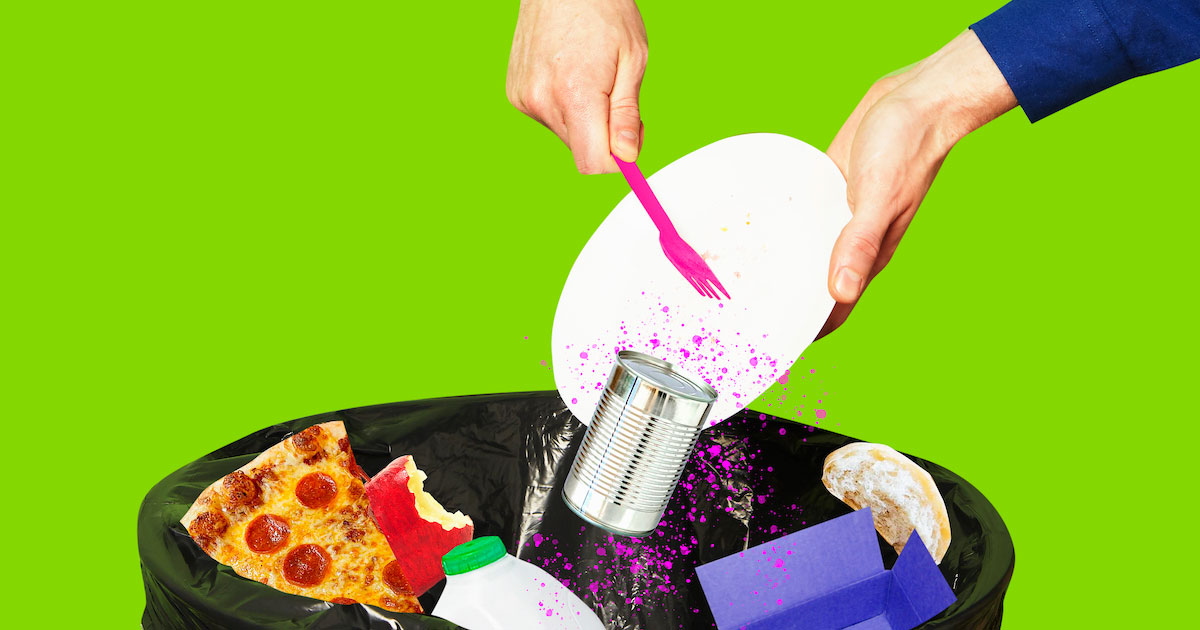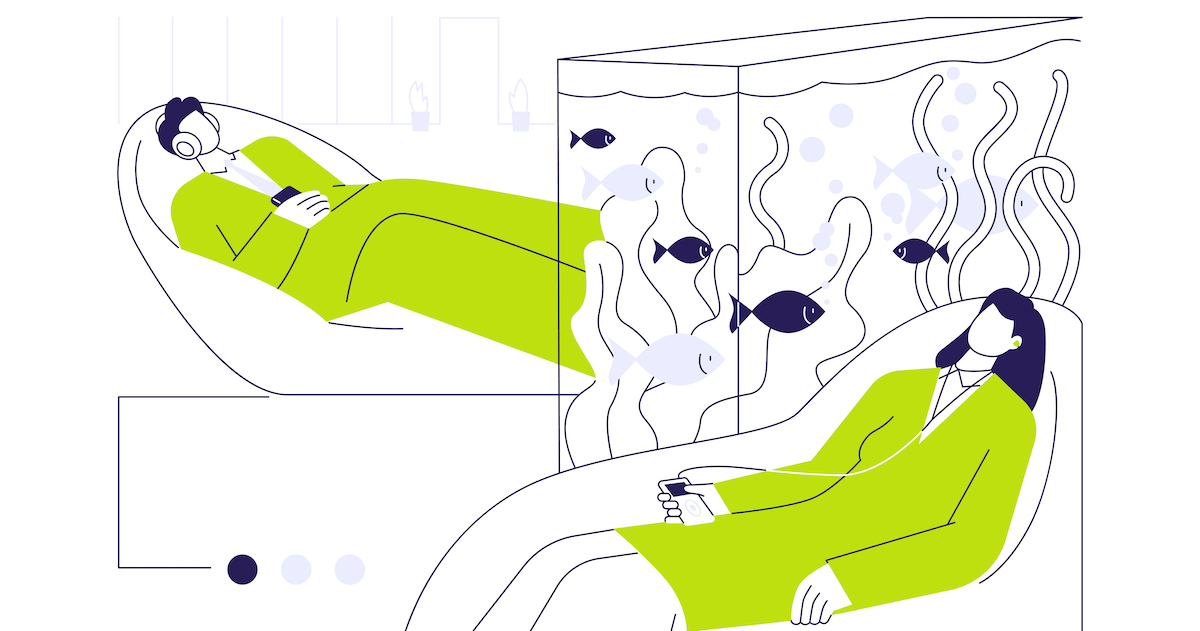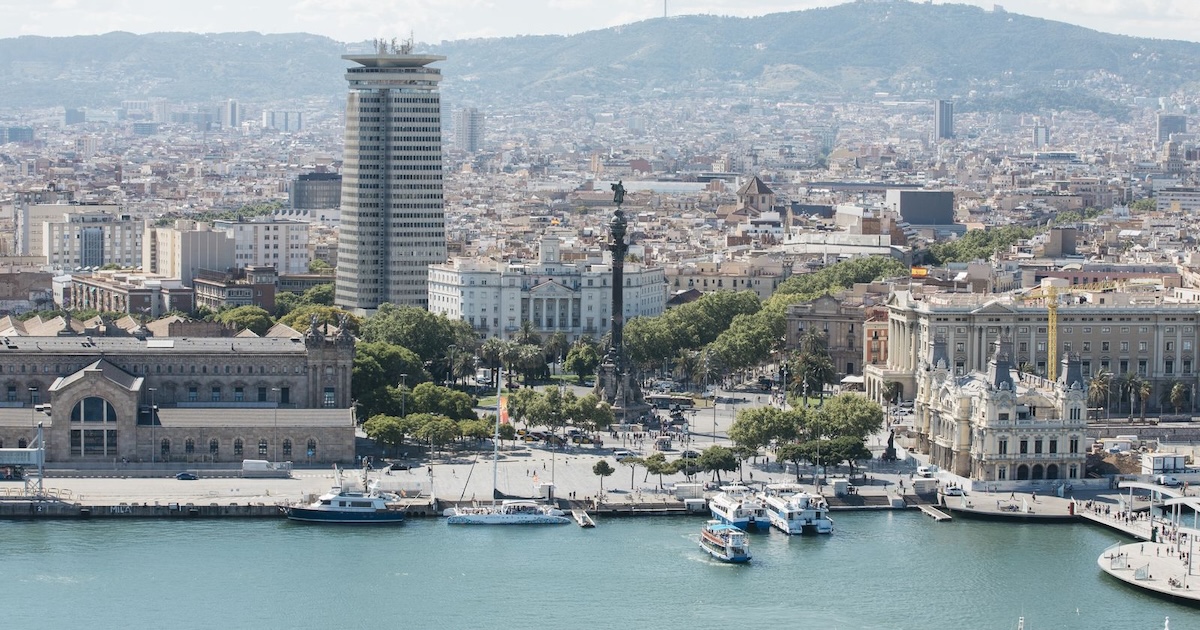This is the full transcript for our February EVENTalks podcast, “Increased Optimism for Recovery in Business Travel and Meetings," sponsored by Discover Puerto Rico. Click here to listen.
Sarah Soliman: When you plan your next event in Puerto Rico, your attendees can look forward to turquoise deep dives, warm weather all year, and safe ways to connect with one another. As a US territory this destination offers the allure of an exotic locale over the rich, vibrant culture without needing a passport or currency exchange. Accessibility to the island has never been easier with direct flight from domestic locations like New York, Charlotte, Dallas, Atlanta, and Detroit to name a few. Please help me welcome director of the MPI Academy Jessie States and CEO of Discover Puerto Rico Brad Dean. (0:03-0:40)
Sarah Soliman: Alright, Brad and Jessie thank you so much for joining me today on this MPI Podcast. You know, as we kicked off 2021, I think part of what I’ve been hearing in the industry is the word optimism, and that’s just such a good word to give us some hopeful outlook into the next year ahead. So, what are you seeing, Brad, specifically happening in Puerto Rico on the meeting's front as we look at the word optimism? (0:44-1:16)
Brad: Yeah, I think I feel like we're in the halftime of a football game, 2020 was the first half and it was tough. We got beat up and we all went in the locker room, 14 to nothing down to COVID. Right. But 2021 is the second half, and just like great football teams, you come out with a few different plans. You're going to change some things. You add in some players, you're taking some people off the field and we're going to score big. And I 2021 is going to be a good year. Good, solid year of beginning and igniting the recovery. And we don't just feel that way, we're seeing that and sensing that in and throughout the industry, both locally and nationally. And I think to a certain degree globally here in Puerto Rico, of course, safety first is going to remain the mantra for all of us. And I think what we're seeing and what we're hearing throughout the industry is that everyone's much more comfortable now continuing to manage this intersection between public health and safety. For us, beaches are open, attractions are open. Of course, the convention center and airport never closed. So, we're excited now to start actually seeing professional planners come in for site visits, and we're having meaningful discussions about booking business later this year, next year, and we know some segments are going to recover a little more quickly than others. But I think everybody understands that. The bottom line is those meetings have to be at the forefront of this recovery if we're going to get the travel and tourism industry back to where it needs to be and we can't wait to start hosting meetings begins here in Puerto Rico very, very soon. (1:18-2:46)
Sarah: Yea, and you know exactly what you said, Brad speaks perfectly to data that we've seen out of the winter edition of Meetings Outlook that MPI conducted. So, Jessie, can you share some of that data? And again, it really does speak to an optimistic and hopeful industry. (2:48-3:04)
Jessie: Yes, we're starting to see some really good positive signs of recovery in the data that we collect quarterly as part of our meetings outlook. Deep into last year, late summer, early fall, there was a lot of pessimism in the marketplace. In addition, we were doing some additional surveys around business outlook, not associated with meetings outlook, and a good proportion of meeting professionals were predicting that we wouldn't even start to hold in-person meetings until 2022. There was a lot of pessimism about when business was going to start to recover. Now we're seeing in our February meetings outlook that 65 percent of meeting professionals say that they believe they'll see favorable business conditions in the next 12 months. That's up from 58 percent in November, so we're starting to see that climb back up, that idea that we may actually be able to see the other end of this. Contract employment numbers are starting to pick back up again, which is a good sign. That was an early indicator after the recession, that business was starting to come back. 90 percent of meeting professionals say they're going to host a meeting this year, and I think that's the number that I really wanted to kind of point out the most, and that doesn't include 3 percent of people who did it last year. So that's a really, really incredibly high number of meeting professionals to say we're at least coming back in some capacity in 2021. (3:05-4:29)
Sarah: And kudos to MPI, really, because I think you really helped ignite that level of confidence in the industry by moving forward with WEC in person in Grapevine in November of 2020. And of course, Brad, Discover Puerto Rico was a great partner and supporter of that. You were there in person, which really kind of showed your true support of let's get back to business. Right. That's really the key here. So, with all of that said, how will meetings and events look different in the future? And Jessie, we'll start with you, because I think just with your experience having a first hand in the planning process. (4:30-5:10)
Jessie: I think that there’s some, some people think that we're just going to go back to the way we were before, that everyone's going to get a vaccine and we're going to all be hugging and kissing and shaking hands again, and that's just not going to be the way that it is. The protocols and procedures that we have set in place are likely they're not going to disappear overnight. We're going to need to continue to study and understand how this virus impacts people and how it's how it's transmitted, regardless of whether people have the vaccine or not. The new requirements for cleaning are going to remain unchanged. We're still going to be distancing and wearing masks in the kind of near to mid future. So, some of these changes probably needed to happen anyway. I mean some of our practices weren't necessarily the most clean when you take a look at the way that we were hosting meetings and events in the first place. So, I think all of it is lessons learned, and the big idea here is really to educate around, you know, how do we host safe meetings and events and how do we host healthy meetings? (5:11-6:13)
Sarah: And Brad, I'm sure you're seeing that change take place in, of course, your beautiful convention center and some of your hotels. So, can you speak to what your destination is really doing to create healthy and safe meetings moving forward? (6:14-6:31)
Brad: You know Sarah, I think Jessie nailed it. We're not going to go back to the way things were before, so we have to just embrace a new reality, but that's not necessarily a bad thing. And so here in Puerto Rico, we recognize that managing that intersection between health and safety and travel, it's not a differentiator, It's not an advantage. That's the price of admission to the game going forward, and while none of us want to talk about it, let's face it, we've got to come out of this better prepared to handle the next crisis due to pandemic or what have you. And so for us, it's critically important to have a facility like the Puerto Rico Convention Center that we've always touted as being the largest and most technologically advanced of the Caribbean, and it is, but we're now more likely to tell you about the fact that it's a GBAC star rated facility and it's very, very close to CVS and Walgreens and Wal-Mart in case that's important for you and your group. So being conscious of those important details that are incredibly relevant to every planner that's planning an event. But I think it's also fair, what we have to do as an industry is get really, really comfortable and have a concerted effort to manage this all along the travel continuum. We've taken a lot of precautions at our airport, our convention center and the hotels, but it's every bit as important to make sure that the uber driver, the taxi driver, and every stop along the way is going to demonstrate to planners and their attendees that we've got your back. We're going to make certain that you don't need to worry about health and safety, we've got that covered. And I think that's the price of admission going forward. And then, you know, to the broader perspective on your question, I think there's an opportunity with our industry that I'm already starting to see and I credit MPI and WEC for really being one of the first to step out and demonstrate this, that we've got to think and approach this a little differently beyond just health and safety. We've got to get very creative about how we deliver the experience with enhanced technology, expanded digitalization and a high level of execution that exceeds the expectations of professional planners amidst all these challenges. And I think that's certainly possible, and it's going to challenge us to do things differently, especially when you think of an event like WEC. You know, I'm there because of great information education, I'm there for networking, I'm there for professional development in that sense of community that we've all come to appreciate. We can still deliver that before, during and after the events. We just have to do it differently. You're seeing it today with clubhouse. You know, one of the raving apps out there, whether they're creating sort of niches within niches of networks and facilitating ongoing communication, I think we'll probably see more and more that the experience of the meeting is starting before and extended far after that. And as Jessie said, a lot of this was already was always needed. I think we're just seeing an acceleration of progress that was underway. (6:33-9:27)
Sarah: And you used a very important word there, Brad is getting creative and we really have seen that across the industry, just ways to get creative, to meet and still have that community and that connection and that leads me to maybe thinking also about hosting events and outdoor spaces, outdoor venues and creating experiences outdoors where people maybe feel a little bit more comfortable. So Jessie, what what's your take on that? You know, how can planners really think about designing experiences both at indoor venues, but really kind of incorporating the outdoor space as well? (9:29-10:05)
Jessie: Yeah, our data tells us that planners are really honing that increased interest in outdoor venues. Last summer when we asked leading professionals what kinds of activities, they felt most comfortable with, a large outdoor events rated higher or a greater comfort level than even small indoor events. So, there is just a greater level of comfort in the science says that it's safer for us to be outside. And that gives planners, to Brad's point, the opportunity to be just a little bit more creative in the design of their experiences. You know, we've all seen the photos of the people on hotel balconies watching a concert or drive-in events. I think that there are opportunities to be really creative in an outdoor space. It's important to remember, though, people's abilities, allergies, and senses and how those are impacted when they're outdoors, just like they are when they're indoors. So, designing that into the experience and making sure everybody feels really welcomed is important. (10:07-11:06)
Sarah: And Brad, can you speak to that as well, just how we're shifting toward, and not even shifting, just enhancing on creating outdoor experiences, given the times. (11:09-11:19)
Brad: It really is an enhanced experience and I think it really is an enhanced experience and I think it's not a new strategy or a different strategy, but I think it's an elevated strategy. As Jessie mentioned, we know many people feel more comfortable in open air environments, and we're certainly aware of the unique advantages of the destination that we have in this realm of being in the midst of the Caribbean with year-round warm weather. Puerto Rico offers a variety of outdoor experiences. So, beaches to mountains to, you know, indoor to outdoor rum distilleries, and historic facilities that are centuries old. We're able to deliver on a lot of that and then beyond the venues themselves, just the wide array of experiences from the only rainforest in the US Park Service to the bioluminescent bays that you can only find a few places throughout the world. So, we're leveraging that as a competitive advantage, particularly for planners who know that to attract people in person to the meeting, you still have to deliver on the promise, both at the meeting and outside with the experience. But you know Sarah, I think if we zoom out and think long term about our industry today, we're talking about the importance of outdoor venues because of covid, but post Covid it'll be something else. And I think what this ultimately comes down to is that whether you're a buyer or a supplier, we've got to get very, very creative about continually rethinking, revisiting, and restructuring, and enhancing the business model and delivery there for meetings and business events. That’s incredibly important for those of us who host these events to become increasingly responsive and adaptive to the needs, desires and expectations of planners in their 20s. And what's always the case with the bar just got a little higher over the past 12 months. And for those of us in the supplier side, particularly destination marketers, we absolutely, positively, unequivocally cannot take meetings and planners for granted any longer. It's not just an economic source, it’s an honor and a privilege to host these events that make great things happen, and we have to think about it differently and plan differently if we're going to usher in a new era, a golden era for meetings and conventions going forward. (11:20-13:28)
Sarah: Yeah, I often say now and Brad, I think you and I discussed this last time we chatted was that I don't think we ever have to argue the value of face-to-face meetings ever again. I think we've proven our case, right? So, I thank you COVID for that. If there is one positive that's certainly one of them, and part of the event experience, right. What makes events so beautiful is bringing people together to also give back through CSR initiatives. So how are we seeing those initiatives enhance as well during a COVID time frame? (13:29-14:07)
Jessie: Yeah, the move towards greater environmental and social responsibility was already having Brad, I think you said earlier, COVID has accelerated so many things for us and I think environmental and social responsibility is one of those. Business was already looking at that. They were already experimenting with marketing events where they were events for good, be that either environmental or community based good. So, there was already this this big build up and movement of interest in social and environmental responsibility. So, I think that certain parts of the pandemic have really had us thinking about our use of Single-Use and disposable items. Meeting professionals are really trying to cope and understand how they can continue to offer environmentally low impact events, given some of the constrictions that are out there. But we know through experts like our Julia Spangler, who does our system sustainable specialist course, that there are alternatives to these things. So, from the environmental side, just continuing to look at lowering the impact of our events and then on the social side, looking for ways that we can really impact communities and leave positive legacies everywhere we go. (14:08-15:31)
Sarah: Brad, do you want to speak to that as well, and how Puerto Rico is really partnering with groups that are interested in hosting meetings there to create these CSR experiences? (15:25-15:44)
Brad: You know Sarah, it's a moral imperative. It's the right thing to do. It's also good for business and good for community, a true win win for all involved. And I think what we've learned in Puerto Rico is that requires us to think and act proactively on this. I think many future decisions about how to meet, when to meet, and where to meet will be increasingly guided by value-based decisions. And so, buyers and suppliers, we should aspire to create meetings, events and activations where our meetings meet our values, travel with a purpose, if you will, not merely a chance for me to travel and do good, but to truly get back and make an impact. And let's face it, if we truly believe in the transformative power of travel as a force for good in our community and throughout our country and our world, then we shouldn't be bashful about building that premise into our strategy. It doesn't need to be a sideline or a byline. It needs to be part of our central purpose. So, one of the great things that our marketing and sales team here at Discover Puerto Rico did when we opened up in 2018 is they said, let's be bold about this. Let's make this part of our advantage. So, we incorporated the Art Walk, a cultural tourism project designed to promote Puerto Rico's vibrant art scene through curated experiences and art walks and tours and whatnot, and built that into not only the group experience when they attend, but for some of the site selection visits and for the planners that were coming on fam. We wanted them to get a taste of local culture. We built in Coqui, the corporation have been known Yenisei Biggera, which in Spanish refers to our local Afro Puerto Rican Community Center, which gives unique opportunities to give back Rudbeck, which is hosted projects for a group with a focus on art professionals and those who come to join forces with local performers and artists to engage and interact. And my personal favorite, the most recent one, the Adopt the Coqui program. If you've ever been to Puerto Rico, there's a whole island full of coquis, these tiny little creatures that give us a beautiful symphony made possible by Mother Nature each night and facing potential extension with extinction. We've allowed planners and attendees to adopt a Coqui and help with that. And those are all customized to our destination and align with our brand. But every destination that MPI engages with has their own unique offering. And so, I think this has to become more and more central to our planning and marketing because frankly, it's going to guide the decision making more often than not in the future. (15:46-18:20)
Sarah: Yeah, I love that you brought up the Coqui program because that's one of my favorite things. Every time I'm in Puerto Rico and I hear the Coqui, it's like, yes, I'm on this beautiful island and it's awesome. It’s just part of the culture and the fabric of the island. So, awesome program there. And Brad, you and I have talked about there is a group that that we actually work with within my company that is, you know, moving forward with hosting their in-person meeting in Puerto Rico this year in 2021, obviously, hybrid. Right. So that is the talk of the industry is hybrid meetings. So, I'll start with you on this. How is Puerto Rico really working with event organizers to ensure that they have all the right resources to produce a successful hybrid event? (18:21-19:10)
Brad: We started with a basic challenging premise that as a destination marketer and a liaison to our community and our island, we have to deliver to every professional planner the promise that we're going to make certain that you can host an epic event or meeting, whether it's in person or hybrid. And so that's the premise we’re starting from and we recognize this is so incredibly important right now and that's not going to change. We're fortunate to have a robust hybrid meetings infrastructure. It started with the Puerto Rico Convention Center, where we built and outfitted a dedicated in-house broadcast studio right across the street from the street to the new 5-acre retail entertainment dining district. So, we're able to potentially create events that will be every bit as captivating in person as they will online, whether its entertainment oriented, education oriented or just an extension of the meetings, those same types of capabilities will be extended out through other facilities. And of course, our hotel partners play a big role in this. And then additionally, there are other properties throughout the island that are also recognizing that this is going to be key going forward. And as a destination marketer, I'm really looking to organizations like MPI for the research and the guidance on what will be next to allow us to continue to play the leading edge. Bottom line is we have to make it a priority on our own and deliver on that experience so that the planners themselves can deliver on their expectations for their attendees. (19:11-20:38)
Sarah: Yeah, I think Jessie and I both perked up there as soon as we heard the word studio. So good for you for thinking ahead and getting that there. Seriously thank you. because we, you know Jessie, and if you all that are listening, we're at WEC or even if you weren't, WEC did execute a great digital experience and there was a studio build out. And all of those things are extremely important in creating, again, that experience for the in-person attendees, but also for the online audience as your live streaming content to them. So, Jessie, your take on hybrid meetings, you know, moving forward in the industry? (20:39-21:17)
Jessie: Yeah, so they're not going away. There are no businesses out there who saw their expanded geographical and demographical reach exponentially grow. We're just going to say we don't need to do this anymore. So, the digital aspect is going to remain, It's hybrid, It's here to stay. A third of meeting professionals see increasing in-person attendance over the next 12 months. 80 percent say their digital attendance is going to increase and you're likely going to see meetings that are coming back on much smaller that need to connect across regions and small regional meetings that need to connect to one another. And really taking a look at and at, you know, increasing that audience and that scope, whether those people are attending in-person regional meetings, an international meeting, or you're just bringing in additional digital attendees. (21:18-22:07)
Sarah: And really part of creating a successful hybrid event is incorporating a little bit of the destination into the hybrid experience. So, Jesse, I'll stick with you on this and we'll go to you Brad, on how what are some tips on how event organizers can leave in the destination into hybrid? (22:08-22:27)
Jessie: So, I went back and I kind of looked at when we’re designing experiences and we're trying to create that local look and feel we have done this going local research. And we identified 5 different areas that kind of create that sense of place that's necessary for, at that time, in-person meetings and events. But you absolutely want your digital audience to feel like they're there, too. So how do you do that? Well, you do that in these 5 different areas, their environmental or decor, food and beverage, culture, community and thought leadership. So, when it comes to decor, maybe sending out virtual or digital zoom backgrounds for your audience, themed yes or no fan sunglasses, anything at all that you can send to them, whether that's a digital send or a mail to send so that they can feel like they are they are part of that of that destination. Food and beverage send menus and have cooking classes, have shared meals, do a do a mock or cocktails, drink hour with a with a local favorite, maybe Bacardi, for example. When it comes to culture, you can have dance classes or history classes, but really try to kind of share that culture with the digital audience too. And then we talked about corporate social responsibility. But how are you impacting the community, and your online auctions benefiting the local destination? How are you really designing ways in which the digital audience can also leave a positive legacy on the destination? And then finally, that thought leadership element is really working with your destination, working with Brad and his team to find local instructors, local facilitators, and local case studies that can really kind of bring that digital audience to the destination. (22:28-24:12)
Brad: I think Jessie just perfectly laid out the marketing plan for everybody involved in our industry and exactly what we need to be doing. Hybrid is here to stay, but that doesn't have to be hybrid versus in person. I think we change our mindset and just adapt to the new reality, which is how do we use the hybrid element as sort of a new facet to the meeting strategy? And for those of us in the destination marketing, part of our goal, frankly, is to give you more reasons to come back for your next vacation or meeting. So, whether you're here in person or joining digitally, that opportunity still exists. So, I think one is obviously digitalization. There was a lot of progress underway. We now need to celebrate that, embrace that, and expand that. Not just executing good zoom calls and making certain that the planner doesn't have to worry about the AV service, but holograms and other technologies that are emerging or already in place, that I think one hands that. Secondly, and I think Jessie perfectly summarized this, is being able to customize this. Sarah, one of the best things we did in reacting to the Covid crisis for our meetings and convention marketing was we said, you know what, we're stuck at home. Planners are stuck at home. We can't do site visits, but there's no reason why they can't enjoy a great cup of coffee. So, we set them all a packet of Puerto Rico coffee and just said, hey, enjoy this on us and we'll talk soon. But that led to other conversations about virtual vacations and other promotions. How do we stay engaged? That same tactic now plays in. You know, if you can't attend the happy hour that we're hosting after the meetings in person, there's no reason why we can't get the experts at Bacardi to join you for a virtual experience. And we'll send you the ingredients before so that you can enjoy something at home, at least to feel like you're at the destination. And then I think obviously recognizing that the experience and the impact starts before the meeting and it extends long beyond that last closing session. And those of us, both suppliers and buyers, I think need to align and collaborate to make sure that we're recognizing that the sense of community that we perhaps take for granted from time to time in our industry still exists. And you know what? I think about every phone call, they've all started or ended with all of us saying, well, I wish we could do this in person. And I think Adam Sachs, the economist, nailed it recently when he noted the reason why virtual meetings have been able to fill the gap so quickly and arguably easily is because of the existing professional relationship that already exists. And so, we've got to build on that and make sure that we extend our delivery to facilitate that going forward. And if we do, the meetings industry is going to stay every bit as relevant, important as it has been, and arguably even more important, perhaps in different ways, but still very, very important and essential to the health of our industry and our communities. (24:15-27:07)
Sarah: So well said Brad, I think it's amazing to hear all of these ideas and from a destination, how you've had to stop and really think about ways to support meeting planners during this time. And from your standpoint Jessie, seeing how MPI just switched gears so quickly and had to think outside of the box in every capacity. So, thank you both for sharing your insights and advice and creative ways to keep our industry engaged and again, moving forward so we can all get back to business. Because you're right. I mean, again, there is no replacing that face-to-face experience, right? Virtual did fill the gap for the time being, but I I'm pretty certain we're all ready to get back to our normalcy with our in-person events for sure. So, thank you both so much. I really appreciate your time in joining us on this MPI podcast, and I can't wait to actually see you in person at an event in the future. So, thank you. (27:09-28:08)
Sarah: Thank you for listening to this podcast sponsored by Discover Puerto Rico. (28:13-28:18)







